Center for Justice & Economic Advancement
Normalizing Education Resource Center
Pell Grants and Prisons
Access to federal support is a critical component for access to postsecondary education while incarcerated.
On July 1, 2023, the federal Pell Grant once again became available for students who are incarcerated after a nearly 30-year hiatus. In the early 1990s, an estimated 772 postsecondary education programs were operating in approximately 1,287 prisons across the United States. In 1993, 23,000 learners who were incarcerated received Pell Grants. The passage of the Violent Crime Control and Law Enforcement Act in 1994, which prohibits individuals who were incarcerated from receiving Pell Grants, changed that progress. By 1997, the number of programs plummeted to only eight.
Before the full reinstatement of Pell eligibility in July 2023, the U.S. Department of Education (ED) provided opportunities for currently incarcerated students enrolled with select institutions to access Pell as part of a pilot known as the Second Chance Pell Experimental Sites Initiative.

JFF’s Ready for Pell Initiative
JFF’s Center for Justice & Economic Advancement launched its Ready for Pell initiative in 2021 with financial support from Ascendium Education Group. The initiative helps colleges and universities build or expand postsecondary education in prison programs and navigate the reinstatement of Pell Grants, giving learners who are incarcerated new opportunities to attain postsecondary education and launch pathways to quality jobs and economic advancement.
Streamline Pell Implementation
-
Build Pell Grant deployment capacity in 2023-2024 to maximize benefits and financial aid empowerment for students.
-
Train administrators on Pell Grant rules to help students protect their grant dollars from inefficient system practices.
-
Identify strategies to build access and capacity in postsecondary institutions to strengthen prison programming and expand administration of Pell Grants.
-
Strengthen partnerships with correctional and state agencies to expand and sustain postsecondary education in prison and increase Pell implementation.
Provide Equitable Access and Outcomes
-
Develop recruitment strategies that consider eligibility and career pathways and maximize equity.
-
Implement evidence-based wraparound support, such as academic advising and career planning, with a focus on credit mobility and degree completion.
Launch or Expand Postsecondary Education in Prison Programs
-
Maximize credential offerings aligned to labor market needs and student aspiration.
-
Bolster student support and expand social networks for learners who are incarcerated through meaningful engagement with campus-based student success initiatives and community partnerships.
Ready for Pell Partners
Ready for Pell Contributors
-
Strategic Advisors and Coaches
JFF's Center for Justice & Economic Advancement would like to acknowledge the following individuals for contributing their expertise the Ready for Pell project.
-
Stan Andrisse | From Prison Cells to PhD, Inc.
-
Christopher Beasley | University of Washington Tacoma
-
Terrell Blount | Formerly Incarcerated College Graduates Network
-
Erin Castro | University of Utah Prison Education Project
-
Erin Corbett | Second Chance Educational Alliance, Inc.
-
Mary Cusack | Cusack Education Consulting
-
Michelle Daniel | Second Chance Educational Alliance, Inc.
-
Margaret DiZerega | Vera Institute of Justice
-
Tanya Erzen | University of Puget Sound
-
Stephanie Gaskill | Loyola University New Orleans
-
Mary Gould | MG Consulting and Creative
-
Haja Kamara | Formerly Incarcerated College Graduates Network
-
Lila McDowell | Hudson Link for Higher Education in Prison
-
Sheila Meiman | National Association of Student Financial Aid
-
James Monteiro | Reentry Campus Program
-
Monique Ositelu | Itàn LLC
-
Sean Pica | Hudson Link for Higher Education in Prison
-
Patrick Rodriguez | Georgia Coalition for Higher Education in Prison
-
Basia Skudryzk | From Prison Cells to PhD, Inc.
-
Syrita Steib | Operation Restoration
-
Satra Taylor | Operation Restoration (formerly)
-
Chidi Umez-Rowley | Council of State Governments Justice Center
-
Allan Wachendorfer | Vera Institute of Justice
-
Brian Walsh | Vera Institute of Justice (formerly)
-
Rachel Zolensky | Tennessee Higher Education Initiative
-
-
Ready for Pell Grantees
JFF's Center for Justice & Economic Advancement would like to acknowledge the contributions of the following Ready for Pell cohort grantees.
-
Arkansas Community College
-
Amarillo College
-
Arkansas Northeastern College
-
Franklin Cumings Tech
-
California State University, San Bernardino
-
College Unbound
-
Des Moines Area Community College
-
Grand Valley State University
-
Herkimer County Community College (SUNY)
-
Hope-Western Prison Education Program
-
Minneapolis Community & Technical College
-
Moraine Park Technical College
-
Northeast Mississippi Community College
-
Penn State University
-
Portland State University
-
Research Foundation for SUNY (System) – New York
-
San Antonio College (Alamo Community College District)
-
Sinclair Community College
-
Tufts University
-
Tulane University
-
University at Buffalo (SUNY)
-
University of New Haven
-





